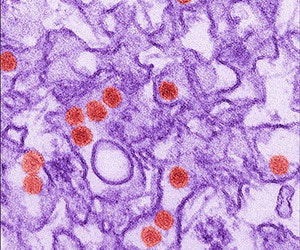Zika Virus

Zika Facts & Information:
OVERVIEW:
- Zika is spread mostly by the bite of an infected Aedes species mosquito (Ae. aegypti and Ae. albopictus). These mosquitoes bite during the day and night.
- Zika can be passed from a pregnant woman to her fetus. Infection during pregnancy can cause certain birth defects.
- There is no vaccine or medicine for Zika.
ETIOLOGIC AGENT:
- Through mosquito bites
- From a pregnant woman to her fetus
- Through sex
- Through blood transfusion (very likely but not confirmed)
ZIKA SYMPTOMS:

- Many people infected with Zika virus won’t have symptoms or will only have mild symptoms.
- The most common symptoms of Zika are:
- Fever
- Rash
- Headache
- Joint pain
- Red eyes
- Muscle pain
- Symptoms can last for several days to a week. People usually don’t get sick enough to go to the hospital, and they very rarely die of Zika. Once a person has been infected with Zika, they are likely to be protected from future infections.
HOW TO PREVENT ZIKA:
- There is no vaccine to prevent Zika. The best way to prevent diseases spread by mosquitoes is to protect yourself and your family from mosquito bites.
CLOTHING:
- Wear long-sleeved shirts and long pants.
- Treat your clothing and gear with permethrin or buy pre-treated items.
INSECT REPELLENT:
- Use Environmental Protection Agency (EPA)-registered insect repellents with one of the following active ingredients:
- DEET, picaridin, IR3535, oil of lemon eucalyptus or para-menthane-diol, or 2-undecanone. Always follow the product label instructions.
- When used as directed, these insect repellents are proven safe and effective even for pregnant and breastfeeding women.
- Do not use insect repellents on babies younger than 2 months old.
- Do not use products containing oil of lemon eucalyptus or para-menthane-diol on children younger than 3 years old.
AT HOME:
- Stay in places with air conditioning and window and door screens to keep mosquitoes outside.
- Take steps to control mosquitoes inside and outside your home.
- Mosquito netting can be used to cover babies younger than 2 months old in carriers, strollers, or cribs.
- Sleep under a mosquito bed net if air conditioned or screened rooms are not available or if sleeping outdoors.
SEXUAL TRANSMISSION:
- Prevent sexual transmission of Zika by using condoms or not having sex.
HOW ZIKA IS DIAGNOSED:
- Diagnosis of Zika is based on a person’s recent travel history, symptoms, and test results.
- A blood or urine test can confirm a Zika infection.
- Symptoms of Zika are similar to other illnesses spread through mosquito bites, like dengue and chikungunya.
- Your doctor or other healthcare provider may order tests to look for several types of infections.
HISTORY OF ZIKA:
- Zika virus was first discovered in 1947 and is named after the Zika Forest in Uganda. In 1952, the first human cases of Zika were detected and since then, outbreaks of Zika have been reported in tropical Africa, Southeast Asia, and the Pacific Islands. Zika outbreaks have probably occurred in many locations. Before 2007, at least 14 cases of Zika had been documented, although other cases were likely to have occurred and were not reported. Because the symptoms of Zika are similar to those of many other diseases, many cases may not have been recognized.
Zika: Questions and Answers
Q. Do we need to worry within the Benton County Mosquito Control District?
A. Given what we believe to be true with regards to Zika virus our area would need a couple of things to happen before non-travel related Zika virus would be a concern in our area.
- We would need Aedes albopictus or Aedes aegyptii mosquitoes to be present. The District has not trapped and does not have a history of either of these species of mosquitoes living in our area. Our seasonal weather and other environmental conditions make it unlikely to very unlikely of these species establishing themselves. See distribution map: click here
- We would need Zika virus to be present. This would most likely require a traveler to be infected with Zika virus, return home, have the virus at a sufficient level in the blood to be transmitted, be bitten by a mosquito capable of transmitting Zika virus (Ae. albopictus or aegyptii). See distribution map: click here
So, given the environmental conditions needed, the lack of capable species, having to introduce the virus by a traveler, the fact we monitor mosquito populations and utilize active control measures, it seems highly unlikely under present known parameters that Zika virus would be a concern in our District.
USEFUL LINKS:
- Centers for Disease Control & Prevention (CDC) Zika Virus webpage: https://www.cdc.gov/zika/
- Zika World Map (CDC): https://wwwnc.cdc.gov/travel/page/zika-information
